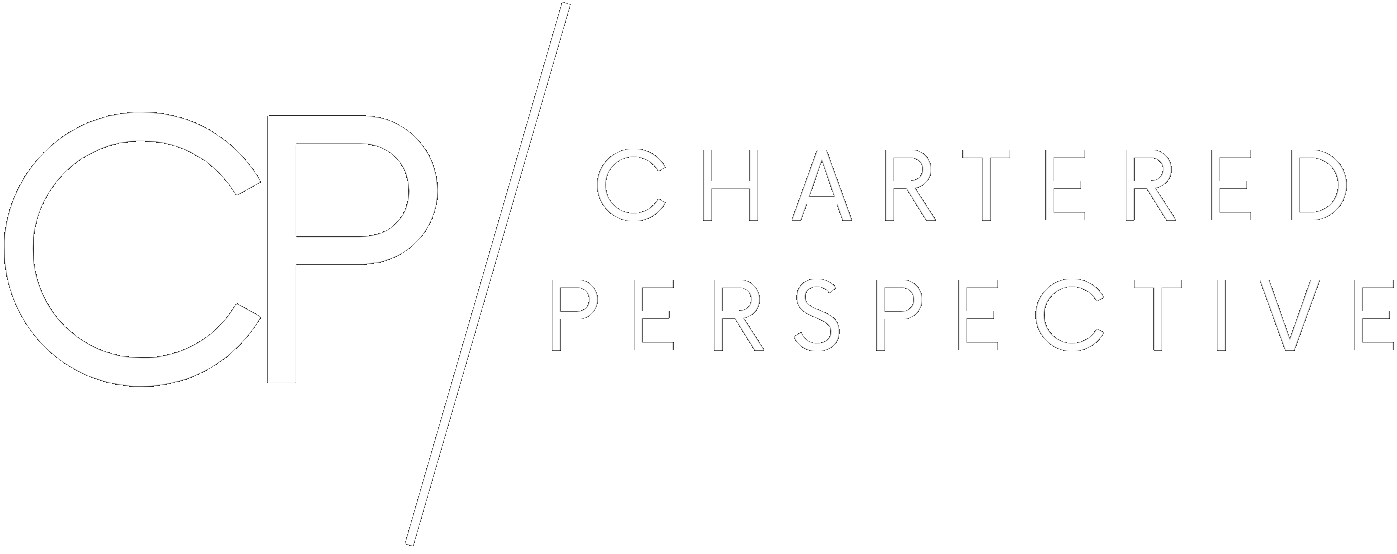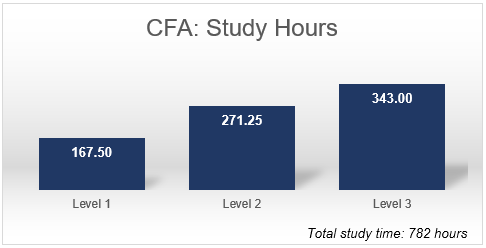CFA Study Time: A Canadian’s Perspective
Whether you have not yet begun the CFA® (Chartered Financial Analyst) journey or are an existing CFA candidate part way through, you may be wondering what kind of time commitment lies ahead of you to obtain the CFA designation. If you are looking for study time information about the Canadian CPA please view my other blog post here.
CFA Program Structure
Unlike some professional designation programs, the CFAI (CFA Institute) has designed a very straightforward program based almost entirely on exam-taking. There are no modules, workshops, or quizzes along the way that candidates must complete. Instead, candidates simply complete a series of three exams, each of which covers a certain set of topics.
Note that in addition to passing the three exams, CFA candidates must also submit roughly 3 years of qualifying work experience. This work experience must be related to the invesment decision-making process in some capacity. The CFAI offers candidates a resource to self-assess whether their expeirence is likely to qualify towards obtaining the charter on their website here.
How Much Study Time Does It Take to Become a CFA Charterholder in Canada?
As someone who obtained the CFA designation, I can shed some light on my personal experience with the program as I religiously kept track of my study time. The CFA exam has a well-known rule of thumb that candidates should expect to study 300 hours per level, however this depends on the educational background and work experience that they already have.
Keep in mind that this is written from the perspective of someone who was in their final semester of an undergraduate program (CPA accredited) in Ontario when they sat for the CFA Level 1 exam. My full profile can be found here.
My journey is outlined below:
CFA Level 1 (167.50 hours)
The first CFA exam has the heaviest focus on accounting/financial reporting and therefore a candidate coming from an accounting background has a small head start on the material, however, this section ultimately makes up only a small portion of the overall exam so studying will still be required. The Level 1 exam touches on several topics at a surface level but does not seem to go very deep. Personally, studying for this exam felt exactly like studying for an Introduction to X course from my undergraduate program. One drastic difference between a regular undergraduate exam and the CFA Level 1 exam was the feeling of uncertainty in my answers. Despite being multiple choice, the questions were generally structured in such a way where the candidate was expected to select the best option, and it felt like I had to rely on an educated guess a lot more often than I was used to during my university days. Nonetheless, despite feeling shaky during the exam, I secured a Level 1 pass with a performance near the 90th percentile no less.
In my opinion, candidates coming from a Canadian accounting, finance, economics, or general business/commerce undergrad program are unlikely to require the full 300 hours for Level 1, depending on how well they remember the material that they’ve likely covered previously in university.
CFA Level 2 (271.25 hours)
In my experience the CFA Level 2 exam was a substantial step up in terms of the effort required to prepare for the exam. In addition to having similar breadth to the Level 1 exam, the topics in Level 2 went to various depths as well. To build on the example from above, if Level 1 was an Introduction to X university course, Level 2 was Advanced X, comparable to a fourth-year level university course where the content is challenging and requires diligent effort to succeed. On the bright side, Level 2 covers arguably the most interesting subjects.
In my opinion, the 300-hour rule is fair for Level 2 and most candidates should expect to commit roughly that much time unless they have an educational or work experience background that gives them an edge.
CFA Level 3 (343.00 hours)
The CFA Level 3 exam does not offer much relief over Level 2. The topics covered are rather different, focusing largely on portfolio management, however there is still plenty to learn. Overall, the Level 3 exam did feel slightly less technical when compared to Level 2, however, candidates need to study extra hard because at this point they are competing against the best and yet the pass rate hovers at around 50%. Further, the less technical nature of the Level 3 content was challenging for me as it was much more qualitative than quantitative.
Of all the exams, I studied the most for the Level 3 exam. The content was not more challenging than the Level 2 content, however, I studied extra because I did not want to have to rewrite. I felt by far the most prepared to write Level 3 (as opposed to how I felt going into Levels 1 & 2) however still felt the exam was extremely challenging.
Final Thoughts: Total Study Time (781.75 hours)
While I was able to pass the three exams below the rule-of-thumb of 900 hours, I still spent a lot of time studying. In my opinion the 300-hour guideline was fairly accurate for Levels 2 and 3, however, for Level 1 candidates can likely get away with less if they are coming from a relevant educational or professional background.
I do believe that a Canadian undergraduate degree in a relevant subject prepares candidates very well for the journey, as evidenced by my success in the program.
If you are interested in reading about my study journey as it relates to CPA Canada, please refer to my blog post here.





